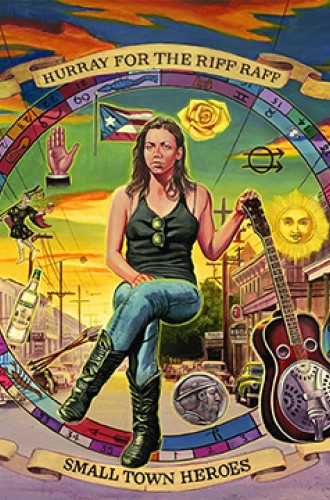Small Town Heroes, by Hurray for the Riff Raff
At the height of gangsta rap, commentators lined up to decry the subgenre’s violent and misogynistic lyrics. Conspicuously absent was much condemnation of a deeper American tradition that efficiently combines violence and misogyny into a single narrative trope: the murder ballad, in which a character, generally sympathetic and male, tells of how he killed another character, generally voiceless and female. Sometimes the killer also helpfully explains why he did this (he didn’t want to lose her, she done him wrong, the devil made him do it, etc.).
Alynda Lee Segarra is tired of these murder ballads getting a pass. The Puerto Rican Bronx native’s fifth album as Hurray for the Riff Raff includes a standout track, “The Body Electric,” that takes the tradition on directly. “Delia’s gone,” she sings, a reference to a well-known specimen of the genre, “but I’m settling the score.”
Not that the song is a woman’s revenge fantasy, itself hardly a fresh idea. Segarra wants to disrupt this violence-against-women script, not flip it, and it’s powerful stuff: “Said you gonna shoot me down / Put my body in the river / While the whole world sings / Like there’s nothing going wrong.”





